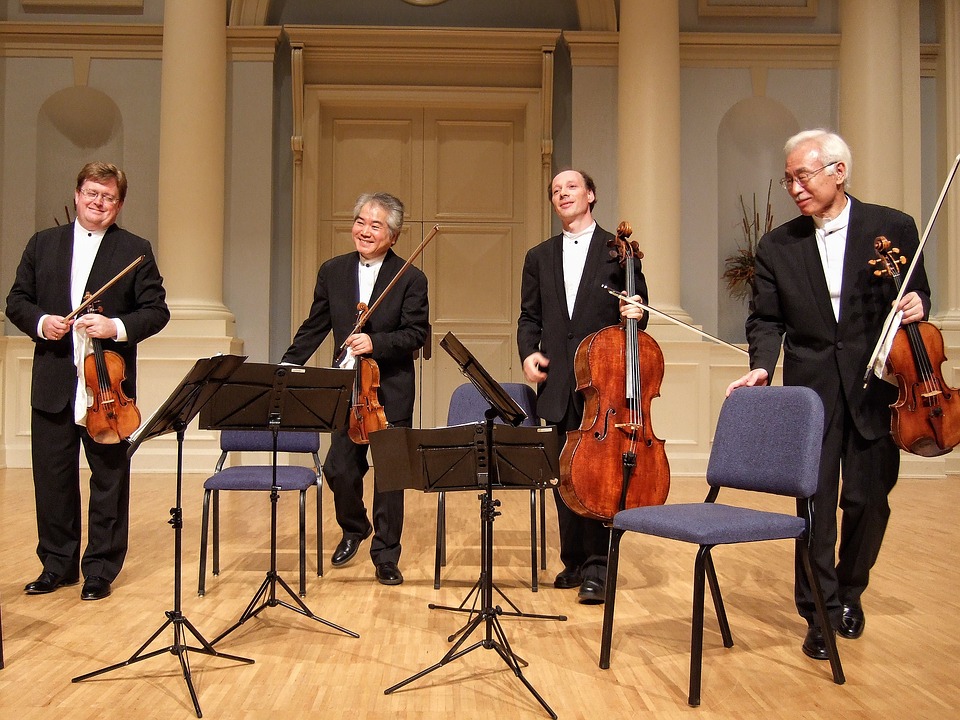The Rich Musical Legacy of the Dryden Quartet
Introduction
The Dryden Quartet, a renowned chamber music ensemble, has left an indelible mark on the classical music world with their rich and vibrant musical performances. Comprised of four talented musicians, the quartet has garnered acclaim for their exquisite interpretations of a wide range of repertoire spanning from the Baroque period to contemporary works. Their exceptional musicianship, passion for music, and dedication to their craft have firmly established the Dryden Quartet as one of the most celebrated chamber ensembles of their generation.
History of the Dryden Quartet
The Dryden Quartet was founded in 2008 by four accomplished musicians who shared a common vision of creating a dynamic and innovative chamber music ensemble. The ensemble takes its name from the Dryden family, a prominent musical family in England during the Baroque era. The members of the quartet include violinists Emma Smith and James Taylor, violist Sarah Adams, and cellist David Wilson. Each member brings a wealth of experience and expertise to the group, having performed with prestigious orchestras and chamber ensembles around the world.
From their very first performance, the Dryden Quartet garnered critical acclaim for their impeccable musicianship, exquisite tonal blend, and insightful interpretations of a diverse range of repertoire. The quartet has continued to captivate audiences with their passionate and engaging performances, earning a devoted following of music lovers who appreciate the artistry and dedication of these exceptional musicians.
Repertoire and Musical Style
The Dryden Quartet is known for their diverse and eclectic repertoire, which includes works from the Baroque, Classical, Romantic, and Contemporary periods. The quartet excels in performing the masterworks of the classical canon, such as the string quartets of Haydn, Mozart, Beethoven, and Schubert. Their interpretations of these iconic works are marked by their precision, nuance, and emotional depth, showcasing the quartet’s profound understanding of the music.
In addition to the standard repertoire, the Dryden Quartet is also dedicated to championing works by contemporary composers. The quartet has commissioned and premiered numerous new works, collaborating with composers to bring fresh and innovative music to audiences around the world. Their commitment to expanding the chamber music repertoire has earned them a reputation as forward-thinking and innovative musicians.
Musically, the Dryden Quartet is characterized by their rich and expressive sound, impeccable intonation, and seamless ensemble playing. The quartet’s performances are marked by their dynamic range, emotional depth, and profound musicality, captivating audiences with their powerful and evocative interpretations.
Legacy and Influence
The Dryden Quartet’s impact on the music world is far-reaching and enduring. Through their exceptional musicianship, dedication to their craft, and passion for music, the quartet has inspired countless musicians and music lovers around the world. Their recordings and performances have garnered critical acclaim, earning numerous awards and accolades for their outstanding artistry.
The quartet’s legacy is not only in their musical accomplishments but also in their commitment to education and outreach. The members of the Dryden Quartet are passionate advocates for music education, working with schools, community organizations, and young musicians to foster a love of music and cultivate the next generation of classical musicians.
In conclusion, the Dryden Quartet has established a rich musical legacy that will endure for generations to come. Through their exceptional musicianship, dynamic performances, and commitment to excellence, the quartet has solidified their place as one of the preeminent chamber ensembles of their time. Their passion for music, dedication to their craft, and profound musicality have left an indelible mark on the classical music world, inspiring and captivating audiences with their artistry and virtuosity.


